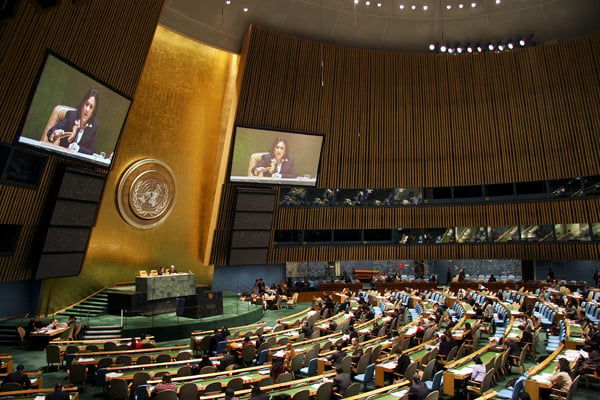There is a quiet revolution taking place in the information and communication technology (ICT) space in Anambra State. And this is by no means an accident but the result of actions taken by Professor Chukwuma Soludo, the executive governor of Anambra State, to expand broadband access, digitize government services and support technology startups.
With an investment of $4.85 billion in Africa’s tech ecosystem in 2022, there is no gainsaying that Africa’s tech ecosystem is experiencing a rapid growth. Today, tech startups, which are based in Lagos, account for over 87% of tech investments in Nigeria. Lagos’s stature as a tech powerhouse in Nigeria could be attributed to two main reasons: the proliferation of tech hubs and abundance of tech talents in the city.
The ecosystem that made Lagos what it is today in terms of ICT is now being nurtured in Anambra. The Governor Soludo-led administration has started a journey to make Awka one of the tech capitals in Nigeria.
Today in Anambra, the framework for the massive expansion of fibre optic networks has been laid with Anambra becoming the first south-eastern state to implement zero charges on Right-of-Way (RoW) per linear metre for broadband infrastructure deployment.
Advertisement
For those who might not be conversant with the ICT space, Nigeria’s communication backbone has basically relied on microwave communication – that is the channel your cell phone’s signal is transmitted. The microwave communication systems are somewhat economical but have great limitation in traffic capacity and has poor anti-jamming capabilities. This is the main reason fibre optic networks – which are able to transmit large quantum of data – have expanded exponentially in Europe and America. Fundamentally, fibre optic cables are seen as a more reliable, secure and higher bandwidth option when compared to microwave systems.
The state’s ICT agency, headed by the former journalist and serial tech entrepreneur, Chukwuemeka Fred Agbata, in partnership with GICL, has deployed about 200 kilometers of fibre optic cables in the first phase of its development, targeted at Ministries, Departments and Agencies (MDAs) and other clusters. Currently, plans have been firmed up for the construction of another 2,000 kilometers, 4-way fiber duct infrastructure. This is expected to catalyze fibre optic systems in Anambra. It will form the bedrock for the ICT systems in the new cities and industrial parks that are currently being designed in the state.
On nurturing tech talents, the recently established Solution Innovation District (SID) – a tech hub – provides a space where startups can be incubated and high-tech businesses can grow. In partnership with Microsoft and Wootlab Foundation, SID recently trained about 20,000 youths in Anambra on digital skills.
Advertisement
In order to scale up these ICT trainings, a recently introduced software development program called ‘Code Africa’, which aims at training an army of youths that would place Anambra as a hub for ICT talents, has started churning out future programmers and developers. With this, the journey of creating an exportable ICT talent pool in Anambra has started.
The tertiary institutions around Anambra are expected to provide support to SID – the kind of support that is akin to what Stanford University does for Silicon Valley in California. In the coming months, a roadmap will be presented on how to take universities in Anambra to the next level.
Collaboration between tech hubs and local universities has started. A few months ago, the state’s ICT agency collaborated with Nnamdi Azikiwe University to initiate an internship programme which resulted in the launch of Electronic Identification Cards (E-ID Card) for civil servants and other government employees of the state.
Since the civil service is the engine of government, the Soludo-led administration has started the journey of digitizing Anambra State’s civil service. Over 200 brand-new computers have been purchased and deployed to the state’s civil service in the first phase of capacity building. Currently, civil servants are being re-trained on digital technology.
Advertisement
The state’s civil service now has a more organized Internet presence. Prior to the advent of this administration, information on Ministries, Departments and Agencies (MDAs) were scattered on the Internet with different domain names and on different servers. But today, most MDAs are now under a standard domain, anambrastate.gov.ng.
With these initiatives in the civil service, the journey to digitize the state’s civil service and transform it into a paperless one has started. It is currently work in progress.
In order to further expand its ICT infrastructure, the state’s ICT agency and Internet Exchange Point of Nigeria (IXPN) are collaborating towards the establishment of an Internet exchange point. If these talks come to fruition, Anambra will become one of the locations for IXPN’s Point – of – Presence in Nigeria.
What is to be gained by being one of the locations for IXPN’s Point – of – Presence? IXPN provides a platform where networks interconnect directly within Nigeria. Thus, it ensures that local Internet traffic remains local, as it were, rather than having to transcend boundaries of different countries before reaching its potential recipients within the same locality. The advantages of the direct interconnection are enormous, but the main advantages are cost reduction, low latency, and increased internet bandwidth.
Advertisement
In the coming years, Anambra is optimistic that it would create an ICT ecosystem where its young ICT talents would create unicorns and export their talents abroad. The journey is underway!
Dr Nwankwo is the special adviser to Soludo on special projects.
Advertisement
Views expressed by contributors are strictly personal and not of TheCable.
Add a comment







